You can’t have Chinatown without Chinese food. In Vancouver’s historic neighbourhood, there’s the tourist, looking for a bite of culture. There are politicians like Justin Trudeau, looking for a place to campaign. There’s the immigrant senior, looking for familiar food. There’s the resident from the Downtown Eastside, looking for something hot, affordable and a place to sit. But in a pandemic, how are Chinatown’s eateries faring? In this series, we’ll bring you inside the doors of three longtime favourites.
…
“Son, you know what? You need some skills.”
“What skills?”
“If you know how to cook, you’ll get a job. There are restaurants all over the world.”
The advice from his father would eventually lead Andrew Leung to run Gain Wah in Vancouver’s Chinatown, and for a lot longer than he thought he would. When Leung bought the restaurant from a friend in 1989, he told his wife he’d try it for eight, maybe 10 years.
Leung is still there today, 31 years and counting.
The ground floor of 218 Keefer St. has a lot of history. During the First World War, it was Keefer Grocery. During the second, it was Parkview Greenhouse. It later became a Chinese Canadian café called the Way Inn, before Leung helped his friend renovate the place into a dining room for the opening of Gain Wah in 1981.
It’s still a narrow, deep restaurant, and you can imagine the Way Inn’s long counter where patrons once sat on stools sipping coffee.
Dine at Gain Wah today and you’ll see a painting of Canucks’ goalie Roberto Luongo keeping watch on the wall, alongside handwritten Chinese menus and a portrait of Elvis. You’ll sit on maroon seat cushions and eat on teal tablecloths, close to the 1981 originals.
Dishes range from Cantonese classics like barbecue to American-style dishes that have become harder to find in Chinatown today, such as General Tso’s chicken.
While newer eateries in the upscaling neighbourhood are appointed with sleek marble counters and geometric pastel furniture for an instagramming generation, Gain Wah’s dining room is a container of fading blue-collar memories, even though working-class Chinese no longer choose to start their lives here.
As a restauranteur in Chinatown next to the Downtown Eastside — both low-income areas — arguably the most important thing that Leung has kept frozen in time are the prices.
“My wife has been asking me about raising them,” said Leung, putting down his newspaper for a chat on a recent Tuesday afternoon. “Chow mein everywhere else is $15, $16. But I said no. I’m charging $10. Why? I’d rather keep my prices down than spend money on renovations and increase the price. Why would I want to do that? I’d rather give back to the customer first.”
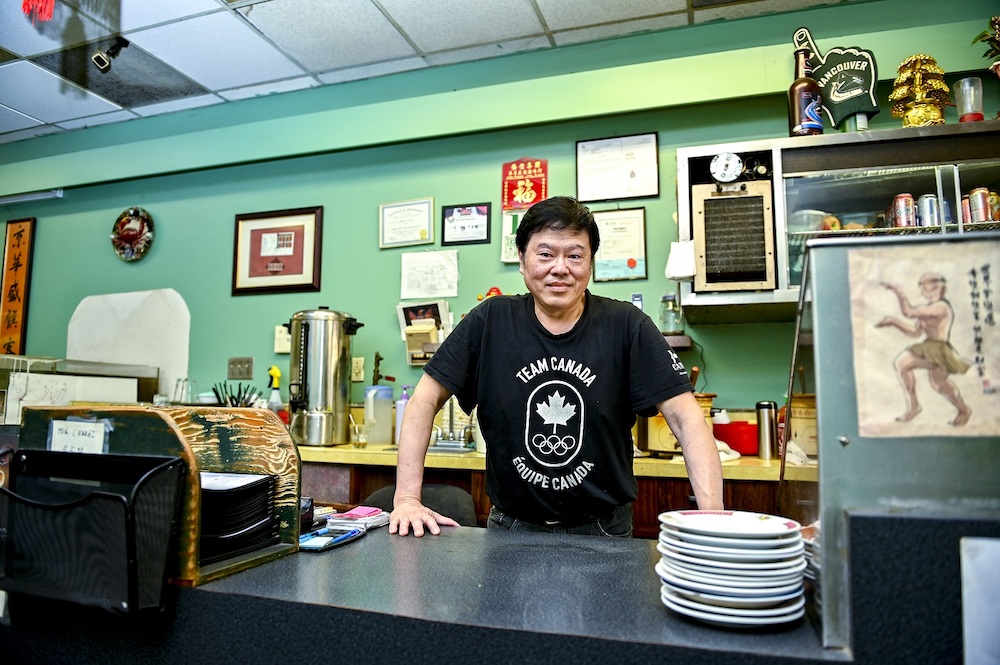
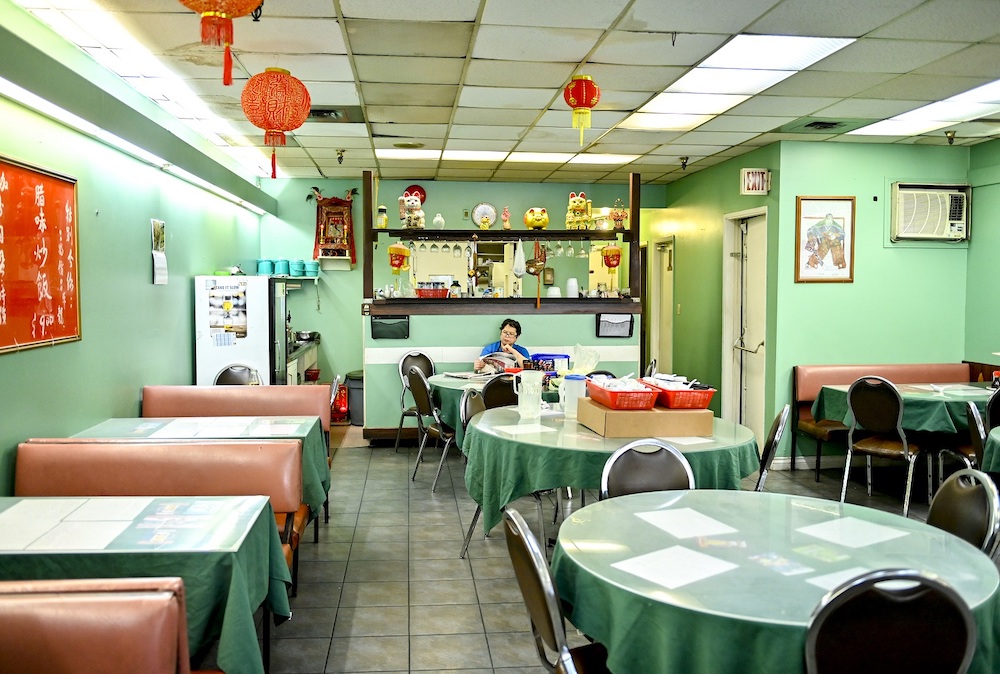
You never know who might walk into Gain Wah. There are many Chinese and Indigenous customers. The Luongo painting, said Leung, is from an Indigenous customer who’s an artist, Little Richard.
There might be tourists arriving to dine from as far as Israel or places like New York, tourists who, despite having Chinatowns of their own, want to see Vancouver’s.
There are also visitors from mainland China who’ve seen Gain Wah on the silver screen. Leung pulled out his phone to show a clip from the 2016 Chinese romantic comedy Finding Mr. Right 2, whose Chinese title is Beijing Meets Seattle. Lo and behold — there’s Leung serving food to the actor Wu Xiubo as part of “Seattle’s” Chinatown.
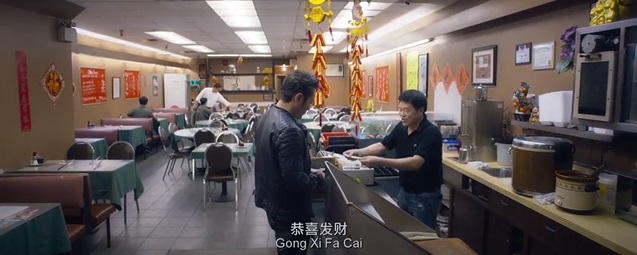
Leung is 65, though he looks a lot younger. His secret: “Less meat, more veggies.” Some longtime customers view him as a big brother for the advice he gives — “Good or bad, I don’t know!” he said — but they’re happy for Leung’s listening ear.
Front-of-house is Tracy, who’s been working at the restaurant for 27 years, and Anna Lao, who’s been around for 10. “I love Elvis,” said Lao in Cantonese, pausing in her run to serve a guest beef brisket to share her affection for the King.
Lao claims responsibility for the Elvis portrait. “Someone upstairs was moving out and selling it — it’s actually painted on a piece of wood — so I bought it for $10 and asked the boss if I could hang it.”
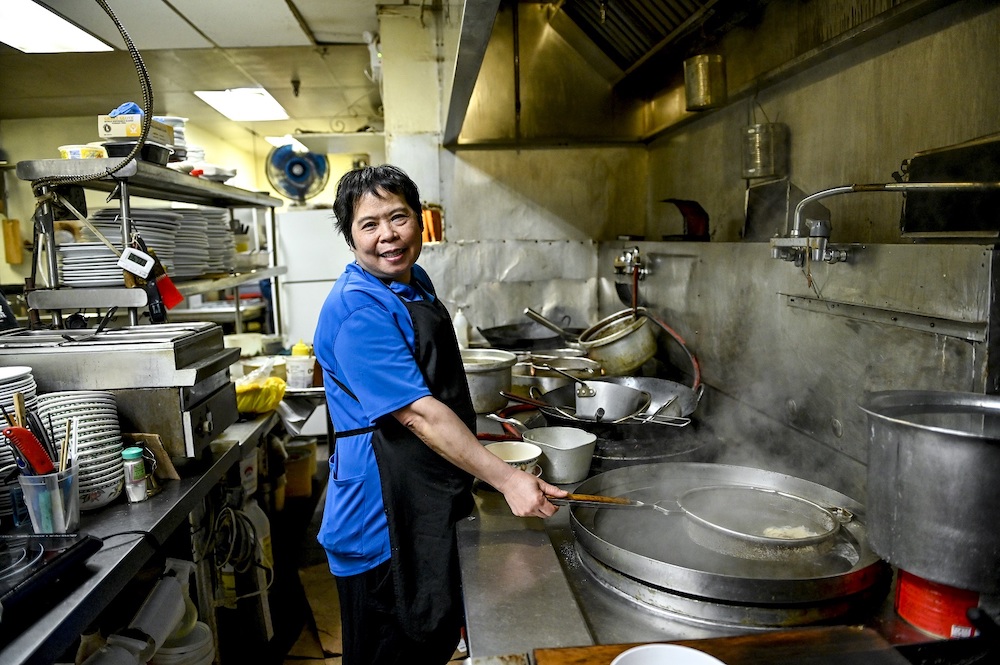
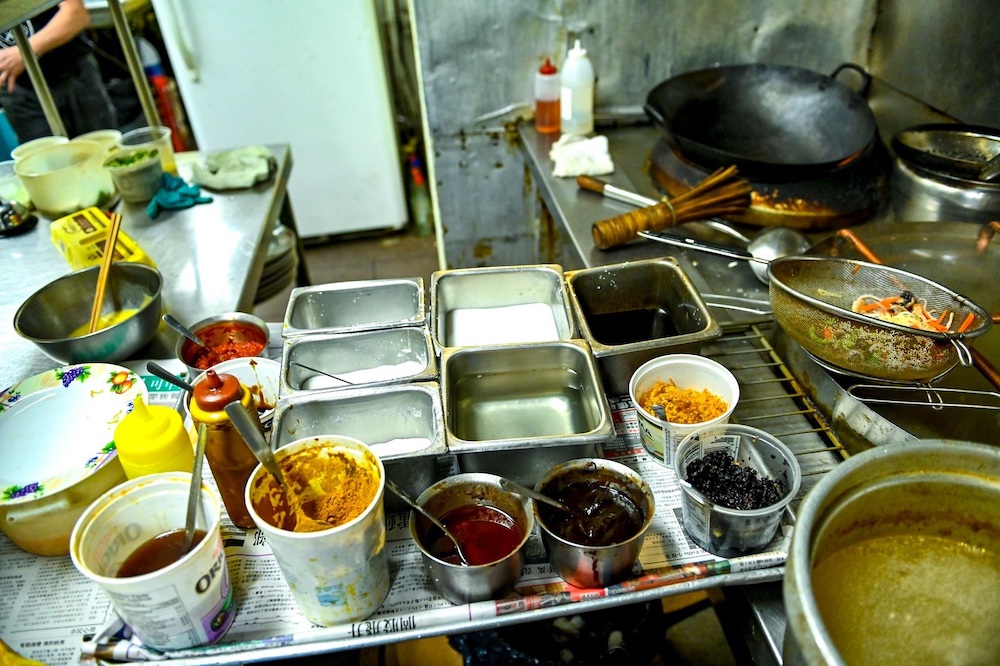
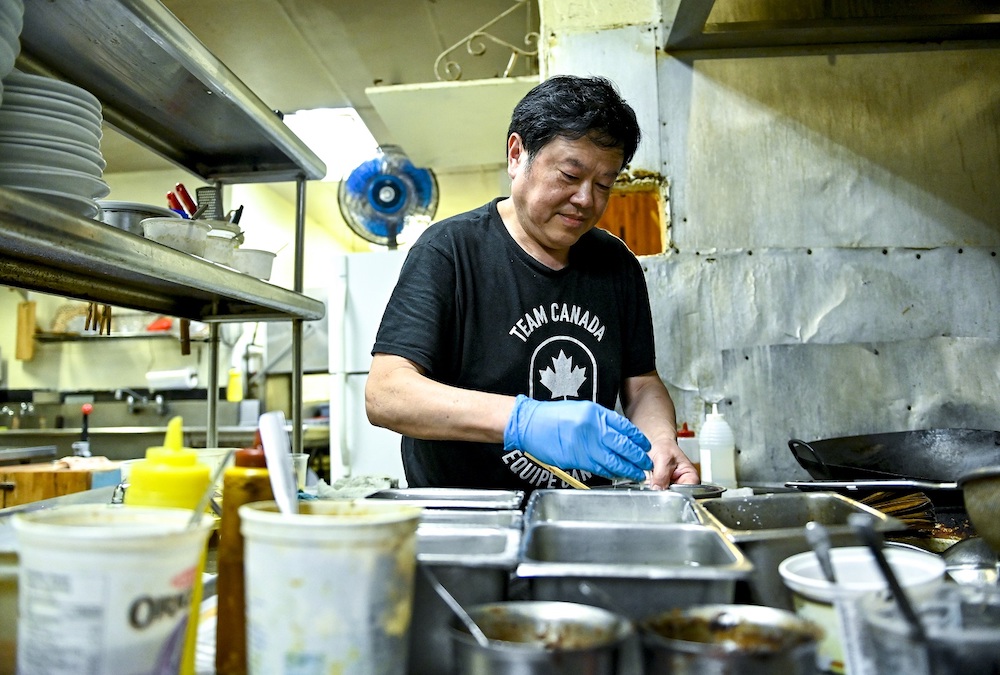
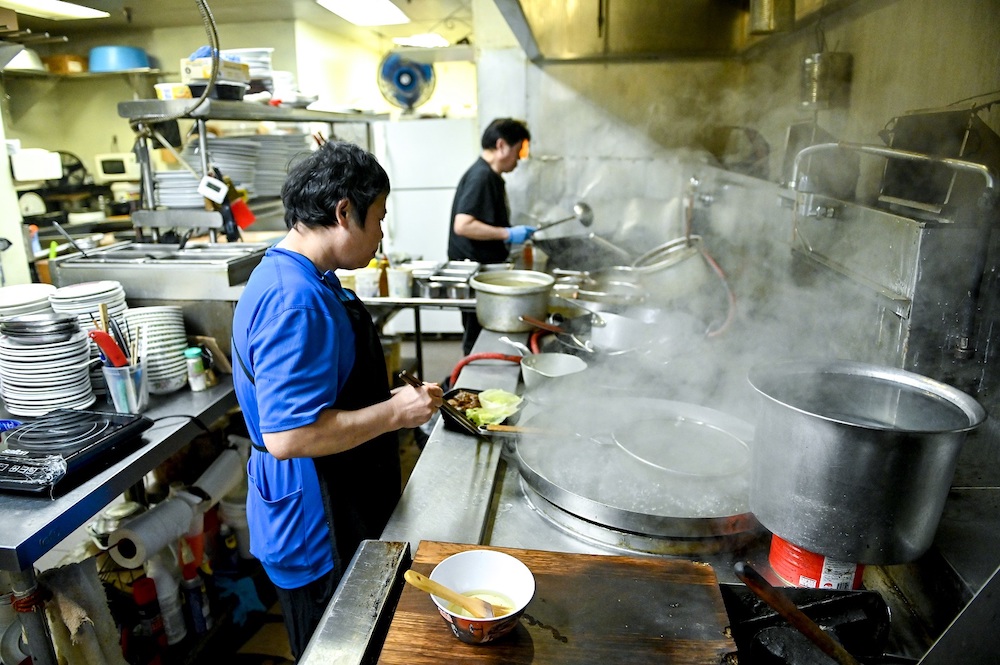
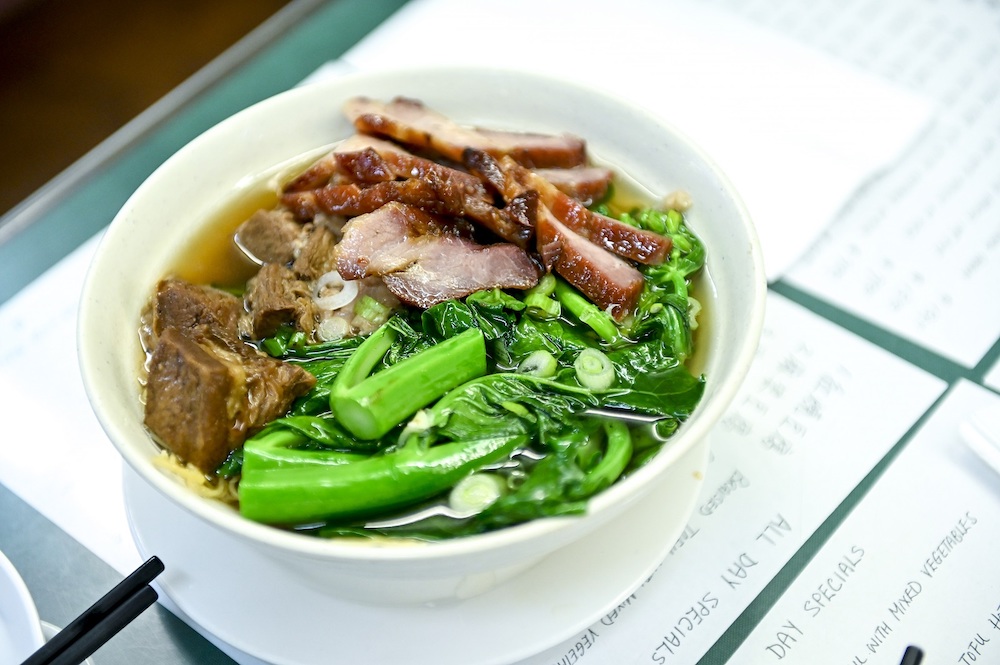
Summers have always meant double the business for Gain Wah. But not this year.
With tourists in short supply, the team is dishing out meals for those close to home. The charity that owns the May Wah Hotel, home to many Chinese seniors, has been ordering from them during the pandemic, and Leung always makes sure to “load it up” for them. “It’s good to do one more thing for the neighbourhood,” he said.
But the heightened racism during the pandemic — resulting in a few incidents of graffiti around Chinatown — has also come calling at Gain Wah. The first call was from a woman who asked if they had coronavirus.
“No, we don’t have any,” said Leung.
“Are you sure?” he recalled the woman saying.
“If you really want it, it’s not far away, just across the border, it’s quite bad over there,” replied Leung.
The next week, another call asking if the restaurant “served coronavirus.”
“No,” said Leung.
“Well, I want to get some,” said the man.
“If you really want it, it’s not far away. It’s really bad in New York.”
“Well, there’s a problem getting tickets.”
“I’ll buy you a ticket if you want.”
“Uhh,” said the man before hanging up.
Then, a few weeks later, another call.
“Hey,” said the young voice. “Do you guys have bat soup?”
“No, we don’t have that,” said Leung, who thought that the caller was asking about “bad soup.” But when the caller pressed again about bats, Leung realized it was a prank from a youngster. “Come on, don’t talk like that,” he said.
The caller hung up. But 10 minutes later, he called Leung back, saying he wanted to sincerely apologize for the “bad joke.”
Leung remembers the racism when his family first moved to Canada in 1973. His father Lenny was a restaurant manager in Hong Kong, and not long after immigrating he began managing Chinatown’s Top of Mandarin restaurant — known for dim sum served on carts — and helped 16 chefs come to Vancouver to work there.
In Hong Kong, Leung had learned how to cook, too, and in 1974 he spent about two years working at a Chinese restaurant in Edmonton at the intersection of 97th Street and Jasper Avenue, then a rough area on the edge of the city’s small Chinatown.
The Chinese Canadian restaurant owner said his father had owned a coffee shop in the city back in the 1920s.
“White guys would bring their horses in and they’d shit all over the place,” he told Leung. “And you’d have to keep your mouth shut. You say something, and they’d beat the crap out of you.”
Even half a century later, white men would come by the restaurant where Leung was working to harass them. “What the fuck are you chinks doing here?” they’d say.
But Leung had a different response. “Keep your mouth shut?” he said. “I couldn’t do that. I was still young. So, you go for it.”
He punched the air with his fists.
“Three times a week,” he said. “Pretty standard. A bad week? Five times. It was a bad area. Lots of bars and drunks around. So I was used to it.”
When Leung returned to Vancouver, it wasn’t much different.
“Even when I started here [at Gain Wah] in the 1980s, people still called you names,” he said. “Racism is everywhere.”
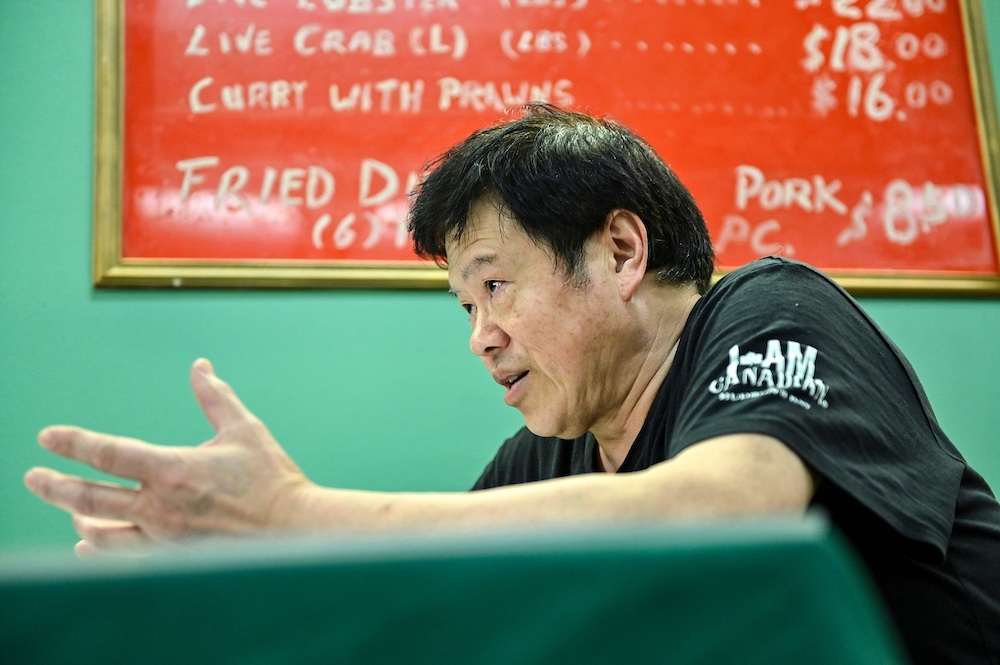
For about 12 years after his return to the city, Leung worked as a janitor in student housing at the University of British Columbia. Rather than making dim sum, he screwed in lightbulbs. “I had a coffee break back then,” he said with a laugh.
Leung’s confession: he doesn’t really like working in a restaurant.
“I was expecting to work maybe 10 years,” he said. “Now it’s been over 30 years. When you’re 40, 50, even if you want to pull out, what are you going to do? Might as well continue.”
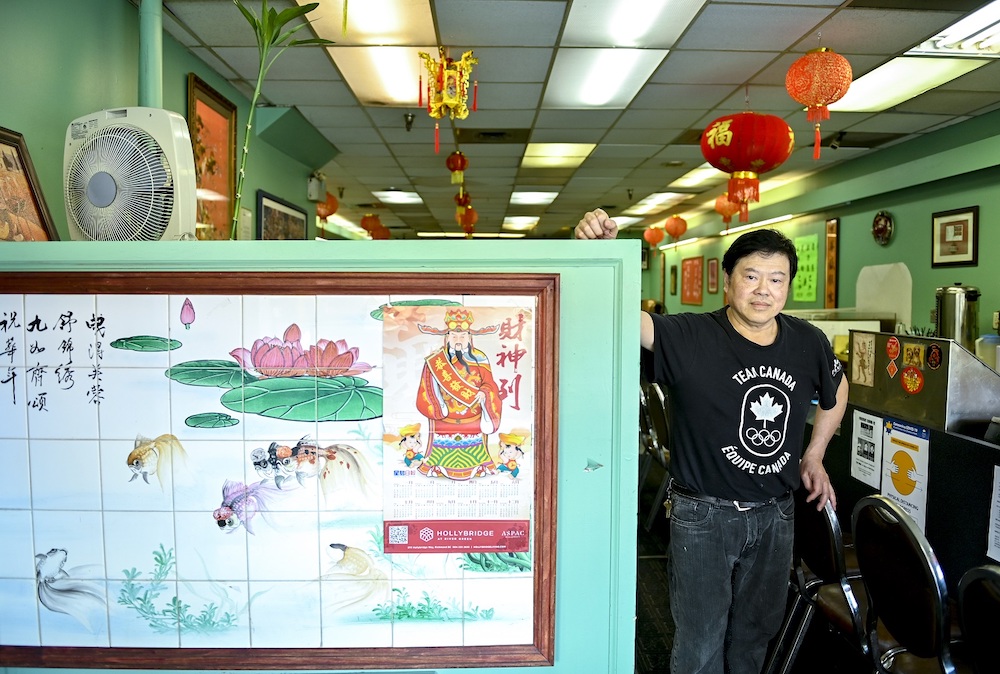
Retirement is finally on the horizon. When, Leung doesn’t know, but he doesn’t want to work as long his father, who didn’t call it quits until he was 80.
“We’ll see at the end of December how things go,” he said.
As for Gain Wah’s future, Leung, like many Chinese Canadian parents in the restaurant business, never thought about passing it on to his two children.
“The work is too hard,” he said. Leung used to work seven days a week, often up to 13 hours a day, though he now takes Mondays off.
But at the same time, he’s not sure what he’d do when he retires.
“I’ve been working since I was 15! What am I going to do at home? Stare at the wall?”
Thinking about it some more, he said time with the family would be nice.
But for someone who’s picked up skills, as his father suggested, it’s hard to put them down.
Later this week: A trip to Canada’s largest Chinese restaurant. With large gatherings limited to 50 in B.C., how is the 1,000-seat Floata doing?
Read more: Food, Coronavirus, Photo Essays






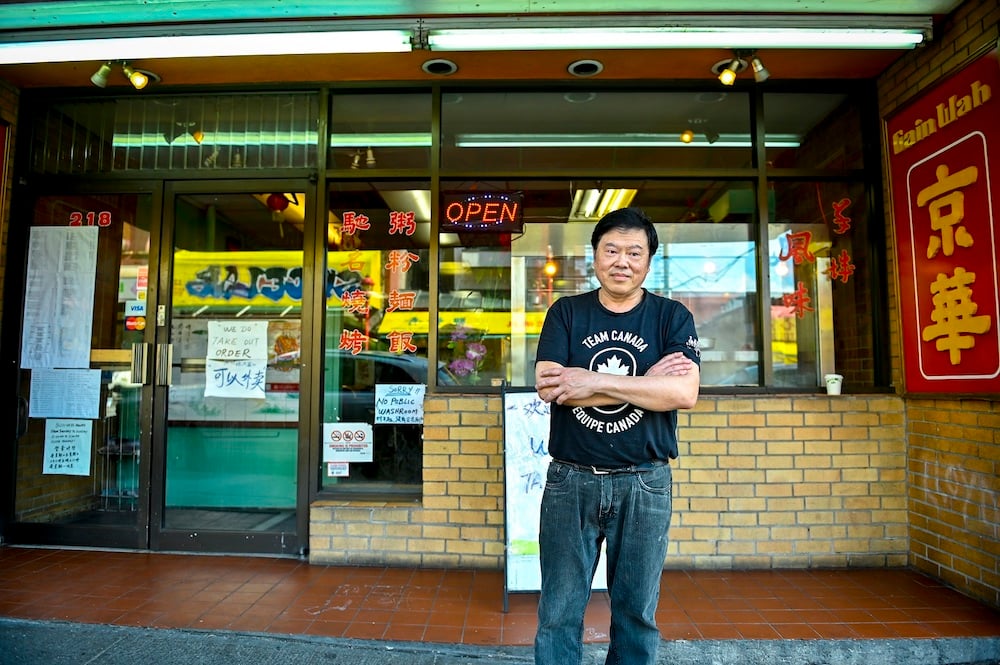












Tyee Commenting Guidelines
Comments that violate guidelines risk being deleted, and violations may result in a temporary or permanent user ban. Maintain the spirit of good conversation to stay in the discussion.
*Please note The Tyee is not a forum for spreading misinformation about COVID-19, denying its existence or minimizing its risk to public health.
Do:
Do not: